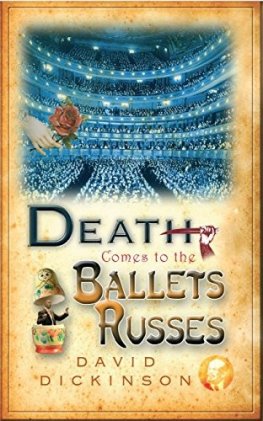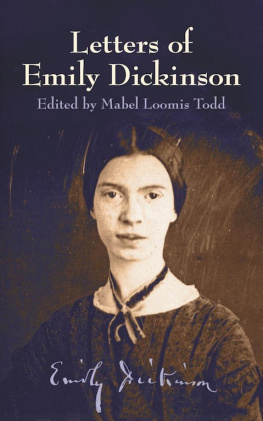David Dickinson - Death of a wine merchant
Here you can read online David Dickinson - Death of a wine merchant full text of the book (entire story) in english for free. Download pdf and epub, get meaning, cover and reviews about this ebook. genre: Detective and thriller. Description of the work, (preface) as well as reviews are available. Best literature library LitArk.com created for fans of good reading and offers a wide selection of genres:
Romance novel
Science fiction
Adventure
Detective
Science
History
Home and family
Prose
Art
Politics
Computer
Non-fiction
Religion
Business
Children
Humor
Choose a favorite category and find really read worthwhile books. Enjoy immersion in the world of imagination, feel the emotions of the characters or learn something new for yourself, make an fascinating discovery.

- Book:Death of a wine merchant
- Author:
- Genre:
- Rating:5 / 5
- Favourites:Add to favourites
- Your mark:
- 100
- 1
- 2
- 3
- 4
- 5
Death of a wine merchant: summary, description and annotation
We offer to read an annotation, description, summary or preface (depends on what the author of the book "Death of a wine merchant" wrote himself). If you haven't found the necessary information about the book — write in the comments, we will try to find it.
Death of a wine merchant — read online for free the complete book (whole text) full work
Below is the text of the book, divided by pages. System saving the place of the last page read, allows you to conveniently read the book "Death of a wine merchant" online for free, without having to search again every time where you left off. Put a bookmark, and you can go to the page where you finished reading at any time.
Font size:
Interval:
Bookmark:
David Dickinson
Death of a wine merchant
1
The living walked past the dead on their way to the wedding on a bright Saturday in October. The path to the church of St Peter, Brympton, was flanked by the tombs of the faithful, laid out in random fashion in the dark Norfolk earth, the words and the letters on the tombs faded with the centuries. St Peters was very old and very simple. Shaped like a cross, it had a large choir, an organ in a gallery at the back where there were pegs for the local farmers to hang their hats, and a series of box pews on either side of the nave. The great Hall of Brympton was a couple of hundred yards away.
In the second pew from the front Hermione Colville, mother of the groom, checked the angle of her hat and took a discreet look behind her. Solid phalanxes of relatives stretched back to the rear of the church, all ready for active service. Strange discordant noises were coming from the organ. The young man, believed to hold advanced musical views, was not delivering the Bach he had promised, but horrid sounds that might, in Hermiones view, have been composed by a gang of monkeys hanging off their trees in some damp and humid forest on the banks of the Amazon.
There were still ten minutes or more before the arrival of the bride. Hermione reviewed her forces. In the pew in front of her, the son and heir who was about to become a husband, Montague Colville, flanked by his rather dubious best man Algy Price, a young gentleman who found little favour with the more discerning mamas of the district. Marriage, her husband Randolph had often proclaimed, helped a man settle down. In Hermiones slightly cynical view, her sons marriage would have a great deal of work to do.
Behind them, the grandfather of the groom Walter Colville and his brother Nathaniel, the two men who had raised the Colvilles out of Hampshire obscurity into a position of power and prominence.
The Colvilles were wine merchants. The little firm that began in humble offices off Chancery Lane had risen to become one of the most successful in the country. One of their accountants had calculated recently that one bottle in every twelve of champagne, wine, port and Madeira drunk in Britain was sold under the Colville label. And that was without taking account of the whisky from Scotland or the whiskey from Ireland or the gin from Hammersmith, produced in a vast factory near the Thames and shipped round the world. Next year the firm would reach its fiftieth anniversary and plans were already being drawn up for a monstrous party of celebration. Secretly Walter, now aged seventy-eight, hoped that his lifes work and the fifty-year stretch might run to a knighthood or, in his wilder moments, a seat in the House of Lords. He had been contributing generously to Liberal Party funds ever since they won the election the previous year.
Behind the veterans a wide collection of Colville outriders and auxiliaries, cousins, nephews and nieces, filled the pews. There was even an overspill of some of the more outlying members of the family into the gallery near the organ.
Colville was to be united with Nash here at three oclock this afternoon. The organist averted the wrath of Hermione Colville by switching to a more decorous Bach. The bride this day, Emily Nash, was the eldest daughter of Willoughby and Georgina Nash, of Brympton Hall in the county of Norfolk. The Colvilles might have been in trade for almost fifty years but the Nashes had been in business in their native county for three hundred years. Nashes had spread out around Norfolk like the tentacles of some enormous squid, washed up perhaps on the North Sea coast nearby after a terrible storm. They began as bankers in Norwich and part of that bank had transferred to London in the eighteenth century. From time immemorial they had owned great swathes of land near Brympton Hall. You could still find Nash bankers in Fakenham, Nash landowners at Holt and Melton Constable, even a Nash headmaster at Blakeney. But it was the law that seemed to run in the blood. Willoughby Nash, father of the bride, was senior partner in the family firm in Norwich with offices near the cathedral. Upstart solicitors sought to dignify their position with multiple names by the door outside their place of work. Nash, solicitors, was all the advertising needed for the owner of Brympton Hall and his colleagues. There were other Nash solicitors at Cromer and Kings Lynn and Little Snoring. The local newspaper editor swore vehemently that the Nash brainpower declined the further away they went from Norwich Cathedral, but that was only his fancy. They had one tradition, the family, that went back as far as they could read the names on their tombstones. The eldest son was always called Willoughby, the eldest daughter Emily.
It was now close to three oclock. The less important Colvilles and Nashes at the very back of the church peered eagerly out of the door for a sight of the bride. Three oclock passed, then three minutes past. The nervous members in the congregation wondered if there had been some terrible accident, a twisted ankle from a fall on the path, a thunderbolt sent from God perhaps. Five minutes past three. Randolph Colville was wondering if he had settled too much money on the son being married today. He had two other children to support after all. His banker, Mr Horatio Finch of Finchs, a man renowned in the City of London for his pessimism, was forever telling his clients that the good times would not last for ever. And there were new competitors springing up in the wine business all the time. Maybe Horatio Finch was right. Hermione Colville had never been quite certain about Emily Nash. She was pretty, of course, she was clever, she seemed competent, but, in Hermiones eyes, there was something you couldnt quite put your finger on. Mrs Randolph Colville didnt think Emily was reliable, she wasnt sound.
Emilys mother Georgina had more prosaic concerns. She, after all, was in charge of the catering, the wedding lunch and all the rest. Would the caterers be as good as everybody said they were? Would it keep dry for the rest of the day? Eight minutes past. The organist seemed to be torn between the classical and the modern. One minute his instrument sounded like Haydn, the next it sounded like no music that had ever been heard before at a wedding in a Norfolk church. Then the organist saw somebody dressed in white approaching the church. Here Comes the Bride thundered forth. Emily stepped shyly into the church, holding very firmly on to her fathers arm. She was of medium height, with green eyes and a great shock of bright red hair. It was not Flaming June in Norfolk this day, it was Flaming October. Willoughby Nash was feeling as sad he had ever felt in his life. After this day he would never have his daughter as his own again. Of course she would visit them, but as the wife of another. He had complained to his wife about how unfair it was that he had to bring his precious Emily up the aisle on her wedding day when he would have preferred to postpone the ceremony indefinitely. Georgina had spoken to him softly about concepts like duty and responsibility and his daughters happiness, and the possibility of grandchildren playing in the garden. So here he was, walking as slowly as he dared, hoping that this journey up the aisle would never end.
Dearly beloved, we are gathered together here in the sight of God, and in the face of this congregation, to join together this man and this woman in holy Matrimony The vicar was a very Low Church evangelical sort of vicar with a beautiful speaking voice. High Church members of the congregation, wistful for the smells and bells of his predecessor, said it was his only redeeming feature. They sang All People that on Earth do Dwell. The vicar took the young couple through their marriage vows very slowly as if hed never done it before. Then he took them through their duties as man and wife, as laid out in the Book of Common Prayer.
Font size:
Interval:
Bookmark:
Similar books «Death of a wine merchant»
Look at similar books to Death of a wine merchant. We have selected literature similar in name and meaning in the hope of providing readers with more options to find new, interesting, not yet read works.
Discussion, reviews of the book Death of a wine merchant and just readers' own opinions. Leave your comments, write what you think about the work, its meaning or the main characters. Specify what exactly you liked and what you didn't like, and why you think so.




